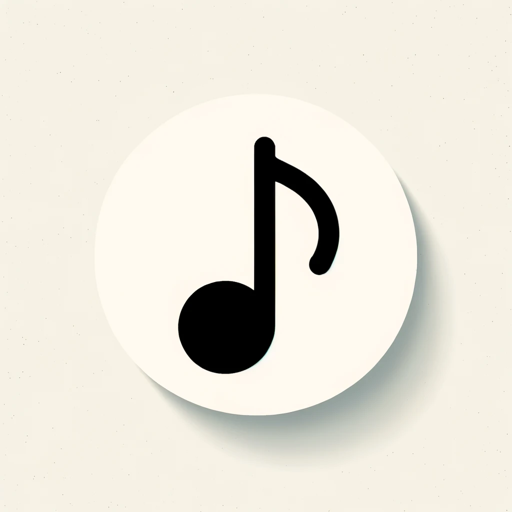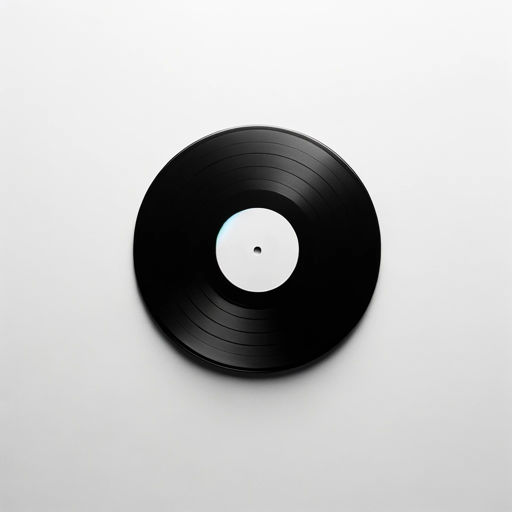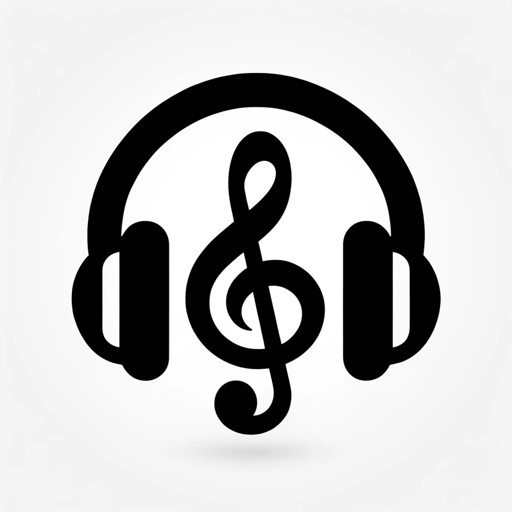Music Guide-Music Theory and Composition Assistance
AI-Powered Music Theory and Composition Guide
Explain harmonic progression.
Compose a baroque-style melody.
Analyze this chord sequence.
Jazzy chrods progressions for liquid drum and bass
Related Tools
Load More
Music Maestro
A personalized music creation assistant for enthusiasts and creators.

Music Nerd
Enthusiastic and knowledgeable music history expert.

Music GPT
I quickly suggest music with links!

Music GPT
A music-savvy GPT that analyzes your playlist to recommend and play songs.

Music Mentor
A guide for bedroom producers, offering song analysis, industry advice, and gamifying music creation.

PlaylistAI - Music Playlist Maker
Unleash your Party with the perfect music for your Event, Crowd and Preferences
20.0 / 5 (200 votes)
Introduction to Music Guide
Music Guide is designed as an advanced, scholarly tool for musicians, music students, educators, and enthusiasts. It serves as an expert advisor in the field of music theory, composition, and history. Leveraging a wealth of musicological knowledge, Music Guide provides detailed explanations, analysis, and practical advice across a broad range of musical topics. For example, it can help a music student understand the intricacies of counterpoint in J.S. Bach's compositions, assist a composer in analyzing harmonic progressions in contemporary music, or guide a music educator in designing a curriculum that covers various music eras and styles comprehensively.

Main Functions of Music Guide
Music Theory Analysis
Example
Explaining the use of modes in Renaissance music.
Scenario
A music student preparing for an exam on Renaissance music can use Music Guide to understand the characteristics and applications of different modes used during that period, with examples from notable compositions.
Composition Techniques
Example
Guidance on developing thematic material in a symphony.
Scenario
A composer working on a new symphony can consult Music Guide for advice on how to develop thematic material across different movements, ensuring coherence and thematic unity.
Historical Context and Analysis
Example
Analyzing the influence of political events on Beethoven's middle period.
Scenario
A music historian or educator can use Music Guide to explore how political and social events influenced Beethoven's compositions during his middle period, providing a richer context for students or readers.
Ideal Users of Music Guide
Music Students
Music students, particularly those in higher education, benefit from Music Guide's in-depth explanations and analyses. It can help them grasp complex theoretical concepts, understand historical contexts, and apply composition techniques. Whether preparing for exams, writing papers, or developing their compositions, students will find Music Guide an invaluable resource.
Music Educators and Researchers
Music educators and researchers use Music Guide to enrich their teaching materials and support their academic work. Educators can draw on detailed content to design lessons and curricula, while researchers can find comprehensive analyses and historical contexts for their studies, ensuring a robust understanding of their subjects.

How to Use Music Guide
Visit aichatonline.org for a free trial without login, also no need for ChatGPT Plus.
Navigate to the website to start your trial with no requirements for login or ChatGPT Plus subscription.
Familiarize Yourself with the Interface
Explore the user-friendly interface, identifying key features and navigation options for ease of use.
Define Your Music Queries
Prepare specific questions or topics related to music theory, composition, or other relevant areas to maximize the utility of the Music Guide.
Engage with Music Guide
Input your questions or topics into the system, and receive detailed, scholarly responses tailored to your needs.
Review and Utilize Responses
Carefully review the comprehensive answers provided, applying the insights and information to your academic or practical music tasks.
Try other advanced and practical GPTs
AI Comic Maker
AI-powered comics: Create, Customize, Share.

Meeting Master
AI-driven insights for your meetings.

Adventure Awaits!
AI-powered interactive storytelling adventure.

Exam Ready Now by Mike Wheeler
AI-Powered Salesforce Certification Prep

UI/UX website reviewer
AI-driven feedback for smarter design

Personal Financial Adviser
AI-driven insights for financial success.

C.A.N. CODE INTERPETER ALPHA
AI-powered assistance for coding mastery

Sports Betting Master
AI-powered sports betting insights

Scholar AI
AI-Powered Learning and Assistance

Home Designer
Transform your home with AI-powered design.

Make A Book
AI-Powered Book Creation Made Simple

Vector Art Designer
AI-powered vector design made simple.

- Academic Research
- Historical Context
- Music Theory
- Composition
- Performance Advice
Detailed Q&A About Music Guide
What is the primary purpose of Music Guide?
The primary purpose of Music Guide is to provide detailed, scholarly information and answers related to music theory, composition, and other music-related topics. It aims to support both seasoned musicians and students in their academic and practical pursuits.
How does Music Guide ensure the quality of its responses?
Music Guide utilizes precise language and technical terminology appropriate for academic discourse, ensuring thorough and well-considered responses that reflect a high level of expertise in music theory and composition.
What types of questions can I ask Music Guide?
You can ask Music Guide a wide range of questions, including those about music theory, composition techniques, historical context of musical pieces, analysis of specific works, and practical advice for performing or creating music.
Can Music Guide assist with academic writing in music?
Yes, Music Guide can provide comprehensive information and guidance that can be used in academic writing, offering detailed explanations, theoretical insights, and contextual information relevant to scholarly work in music.
What are the prerequisites for using Music Guide effectively?
To use Music Guide effectively, you should have specific questions or topics in mind, and a basic understanding of music theory and terminology to fully comprehend and utilize the detailed responses provided.